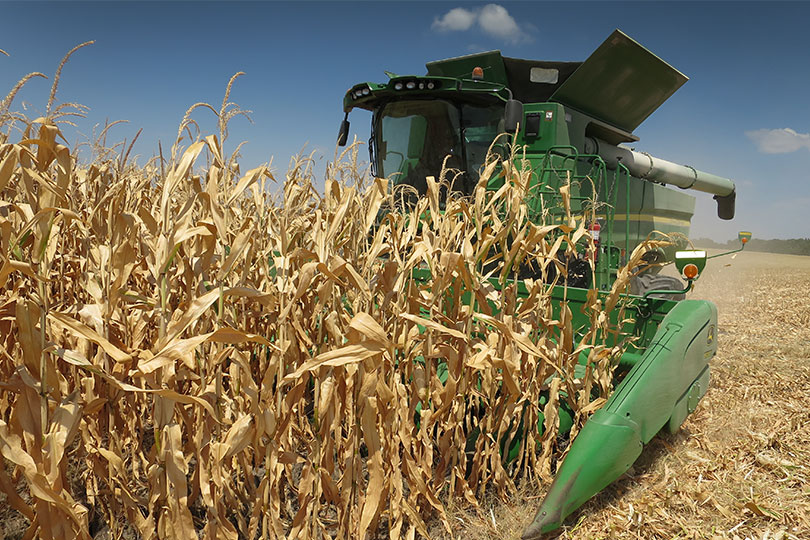By Jessica Domel
Multimedia Reporter
With just a few days left in the legislative session before the one-year extension of the 2018 Farm Bill expires, lawmakers and agricultural organizations alike are asking Congress and the administration to come together on a farm bill and emergency assistance for farmers.
“Farmers across the country need a bridge to help their family farms survive into next year,” Sen. John Boozman (R-AR), ranking member of the Senate Ag Committee, said on the Senate floor. “We’ve seen previous ad-hoc assistance programs establishing in a period of weeks, as demonstrated by then Secretary (Sonny) Perdue when the COVID-19 pandemic created disruptions for producers. That level of timely and urgent response by Congress and the administration is once again warranted.”
Boozman said for the past few months, farmers, ranchers and the organizations that represent them, along with agricultural bankers, have warned of an impending crisis in farm country.
“Producers are struggling to make ends meet in an environment where costs for farm inputs have ballooned from inflation, interest rates have doubled and market prices are far below the cost of production,” Boozman said. “Coupled with years of consecutive losses, the financial stress borne, particularly by our row crop farmers, is now being revealed. The reality is there will be fewer farmers in 2025 if Congress does not respond.”
The ranking member said the ag committee has been warned that many farmers will struggle to secure operating loans for next year.
“The outdated farm safety net they are operating under is doing nothing to address these realities,” Boozman said. “We need to provide emergency assistance to address the economic losses that farmers are facing associated with the 2024 crop. Even with record yields, farmers are still not breaking even. This is not a crisis they can produce, ensure or conserve their way out of.”
Part of the problem is that the statutory reference prices have not been updated since the 2014 Farm Bill.
Since that time, farmers have faced a global pandemic, record fertilizer prices, supply chain issues, increased input costs and inflation.
“Not only are producers not able to pay their bills, but they won’t be able to secure an operating loan for next year’s crop, let alone have any income to survive on,” Boozman said. “This has devastating ripple effects on rural businesses and communities.”
Boozman isn’t the only lawmaker reportedly considering ad-hoc emergency assistance for farmers.
Earlier in the week, Sen. Jerry Moran (R-KS) said Senate Ag Committee Chairwoman Debbie Stabenow (D-MI) is considering attaching a package of farm income support to a farm bill extension.
Stabenow’s office has not yet commented on Moran’s comments.
Texas Farm Bureau (TFB), along with several other agricultural organizations, have urged Congress to consider emergency assistance for farmers and ranchers impacted by low commodity prices, extremes in weather, high input costs and the lack of an updated farm safety net.
“It is obvious farmers will need a short-term bridge of natural and economic disaster assistance to keep them afloat, due to the many challenges they have faced over the past few years,” Laramie Adams, TFB Associate Director of Government Affairs, said.
Even if a new, five-year farm bill is passed by Congress this year, farmers will not receive safety net payments using new reference prices until fall 2026, underlining the need for emergency assistance.
In his speech on the Senate floor, Boozman said emergency assistance does not reduce the need to make meaningful investments to the commodity and crop insurance titles in the next farm bill.
“The clear necessity of providing ad-hoc assistance for economic losses demonstrates how inadequate the 2018 farm bill is,” Boozman said.
He also called for redoubling efforts to pass a farm bill before the end of the calendar year.
“The next farm bill is the appropriate place to make the necessary long-term corrections to our farm safety net, but farmers need timely support addressing 2024 losses as they enter the winter months when they make planting decisions and secure financing for the upcoming crop year,” he said.
Boozman said he is committed to sitting down with his counterparts for as long as it takes to hash out a deal that members can support.
“I know our respective chairs are eager to pass a bill this session of Congress,” Boozman said. “The window to make that happen is closing quickly. Our family farmers are staring down a crisis that is growing more dire by the day and many fear the Senate simply doesn’t care about their plight.”
House Agriculture Committee Ranking Member David Scott (D-GA) made a similar appeal for farm bill action last week in a letter to fellow House democrats.
“We all know that Congress needs pressure to act,” Scott wrote. “That is why Chairman (Glenn) Thompson, Chair Stabenow, Ranking Member Boozman and I agree we are better off without another extension at this point. The farm groups are also asking Congress to continue to work on passing a full farm bill this year and are not supporting any extension at this time.”
Scott said that resorting to an extension and waiting until 2025 to pass a five-year farm bill means they would be competing for resources and floor time as tax cuts expire and the debt ceiling will be hit.
“We need to avoid further uncertainty by passing the farm bill this year,” Scott wrote. “This economic threat is existential for our farmers, which I trust should motivate members into passing a full five-year farm bill.
The one-year extension of the 2018 Farm Bill expires Sept. 30.


Leave A Comment